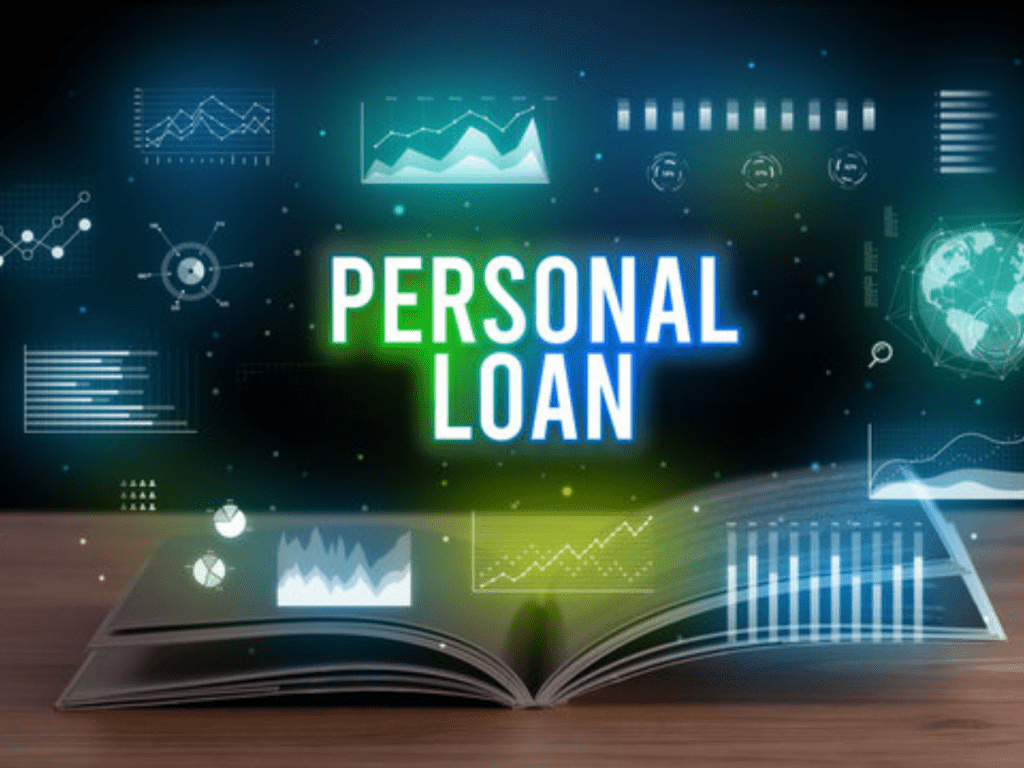Introduction
When it comes to managing debt, personal loans are often a double-edged sword. On the one hand, they can provide the necessary funds to cover unexpected expenses, consolidate other debts, or even make large purchases. On the other hand, the pressure of paying off personal loans can feel overwhelming if not managed properly. However, there are several strategies that can help you pay off your personal loan faster, reducing your interest burden and helping you regain financial freedom.
In this article, we will explore some effective strategies that can assist you in paying off your personal loan quicker. These strategies will not only ensure that you meet your financial goals but also save you money on interest payments in the long run.
1. Make Extra Payments
The most straightforward and effective way to pay off your personal loan faster is to make extra payments. The more you pay each month, the faster you will reduce the principal balance, and as a result, you will pay less interest over time.
There are several ways to make extra payments:
- Biweekly Payments: Instead of making monthly payments, consider splitting your monthly payment in half and paying that amount every two weeks. This results in an extra payment each year, which can significantly shorten the repayment period and reduce the total interest paid.
- Additional Lump Sum Payments: If you come into some extra money, such as a tax refund, work bonus, or an inheritance, use that money to make a lump sum payment towards your loan. This will reduce your balance and the interest you owe.
- Round Up Your Payments: Rounding up your monthly payments to the nearest hundred or even thousand can make a huge difference over time. Even an additional $50 or $100 each month adds up.
2. Refinance Your Loan
Refinancing involves taking out a new loan to pay off the old one, ideally at a lower interest rate. If you have a good credit score, you may be able to refinance your personal loan for a lower interest rate. This will reduce your monthly payments or allow you to pay off your loan faster by keeping the same payment but with a larger portion going towards the principal.
When refinancing, keep in mind the following:
- Lower Interest Rates: Refinancing can reduce your overall interest costs, especially if market rates have dropped since you initially took out the loan.
- Term Adjustment: You can adjust the loan term to suit your repayment strategy. A shorter term might mean higher monthly payments but a quicker payoff, while a longer term might reduce your monthly payments but extend the overall repayment period.
- Refinance Fees: Be aware of any fees associated with refinancing, including origination fees, early payment penalties, or other charges that might offset the benefits.
Refinancing can be a powerful tool for reducing interest payments, but it requires careful consideration of the terms to ensure it’s in your best interest.
3. Prioritize High-Interest Loans
If you have multiple loans or debts, it’s essential to prioritize paying off high-interest loans first. This strategy, known as the debt avalanche method, involves focusing extra payments on the loan with the highest interest rate while making minimum payments on your other loans. Once the high-interest loan is paid off, you can move on to the next highest rate loan, and so on.
The advantage of this strategy is that you will pay less in interest over time, allowing you to pay off your debts more quickly. However, the drawback is that it may take longer to see progress, especially if the loan with the highest interest rate also has a large balance.
Alternatively, you can use the debt snowball method, which involves paying off the smallest loan first, regardless of the interest rate. While this method doesn’t save as much money on interest, it can provide psychological benefits by giving you quick wins and helping to build momentum.
4. Cut Back on Unnecessary Expenses
To accelerate your personal loan repayment, you may need to look for ways to cut back on your monthly expenses. By freeing up more money, you can allocate a larger portion toward paying off your loan. Here are some common areas where you might be able to save:
- Dining Out: Reducing the number of times you eat out each month can add up to significant savings. Consider cooking more meals at home or meal prepping for the week.
- Subscriptions: Review your subscription services, such as streaming services, magazine subscriptions, or gym memberships. Cancel any that you no longer use or need.
- Impulse Spending: Cutting back on impulse purchases and unnecessary shopping can help you put more money toward your loan repayment. Try creating a budget and sticking to it.
- Refinance Your Mortgage or Car Loan: If you have a mortgage or car loan with a higher interest rate, consider refinancing them to reduce your monthly payments and free up more money for your personal loan.
By tracking your spending and making intentional cuts, you can free up more funds to apply directly to your loan, helping you pay it off faster.
5. Automate Your Payments
One of the simplest ways to stay on track with your loan payments is to set up automatic payments. Automating your payments ensures that you never miss a due date and eliminates the temptation to spend the money elsewhere. It also helps you stay consistent with making extra payments or adding extra to the principal, which can accelerate your repayment.
In addition, some lenders offer a small interest rate discount if you sign up for automatic payments, further reducing the total interest you’ll pay over the life of the loan.
6. Look for Opportunities to Increase Your Income
If you find yourself struggling to keep up with your monthly payments, consider ways to increase your income. Whether it’s taking on a part-time job, starting a side hustle, or selling unused items around your home, extra income can help you make larger payments toward your personal loan.
Popular side gigs include:
- Freelancing: If you have a marketable skill, such as writing, graphic design, or programming, consider taking on freelance work.
- Rideshare or Delivery Driving: Companies like Uber, Lyft, and DoorDash allow you to earn extra money on your schedule.
- Online Marketplaces: You can sell unwanted items on websites like eBay, Facebook Marketplace, or Poshmark for extra cash.
By increasing your income, you can pay off your loan more quickly and reduce the overall interest you pay.
7. Negotiate with Your Lender
Sometimes, negotiating with your lender can help you reduce your interest rate or receive more favorable terms. This is especially true if you have been a loyal customer and have made regular payments in the past. Contact your lender and inquire about the possibility of:
- Lowering Your Interest Rate: If your credit score has improved since you took out the loan, your lender may be willing to offer a lower interest rate, which can reduce your monthly payments and the total interest you pay.
- Waiving Fees: Some lenders may be willing to waive certain fees, such as late payment fees or prepayment penalties, especially if you explain your situation.
- Loan Modification: In some cases, lenders may offer loan modification programs that allow you to adjust your loan’s terms to make it more manageable. This could include extending the repayment term or lowering the interest rate.
It’s always worth asking your lender for more favorable terms, particularly if your financial situation has changed or if you are in a position to make larger payments.
8. Consider Debt Consolidation
Debt consolidation involves taking out a new loan to pay off multiple smaller loans or credit card balances. The goal is to consolidate all your debts into a single loan with a lower interest rate, simplifying your monthly payments and potentially saving money on interest.
If you have several high-interest loans, consolidating them into a single loan could help you reduce your interest rate and pay off the debt faster. However, keep in mind that consolidation may come with fees or a longer repayment term, so it’s essential to carefully review the terms before proceeding.
9. Create a Budget and Stick to It
A well-structured budget is a critical tool for managing your finances and ensuring that you have enough money to pay off your loan. By tracking your income and expenses, you can identify areas where you can cut back and allocate more toward your loan repayment.
When creating a budget, be sure to:
- Track Your Income: Understand how much money you have coming in each month, including your salary, side income, and any other sources of income.
- Identify Fixed and Variable Expenses: List your fixed expenses, such as rent or mortgage payments, utilities, and insurance, as well as your variable expenses, such as food, entertainment, and personal spending.
- Set Aside Money for Debt Repayment: Allocate a specific amount each month to your loan repayment, making sure to prioritize paying off high-interest debt first.
A budget will help you stay on track with your loan repayment goals and give you more control over your finances.
10. Stay Disciplined and Consistent
Paying off a personal loan faster requires discipline and consistency. It’s essential to stay committed to your repayment strategy and avoid the temptation to use your loan money for non-essential purchases. Set realistic goals, track your progress, and celebrate small wins along the way.
By following these strategies and maintaining focus, you can reduce your debt burden and enjoy the financial freedom that comes with being debt-free.
Conclusion
Paying off a personal loan faster is a matter of making a plan, staying disciplined, and using effective strategies. From making extra payments and refinancing to cutting back on expenses and increasing your income, there are numerous ways to reduce your loan balance and minimize interest costs. The key is to find a strategy that works best for your unique financial situation and stick with it. By taking proactive steps now, you’ll be on your way to achieving financial freedom sooner than you think.

